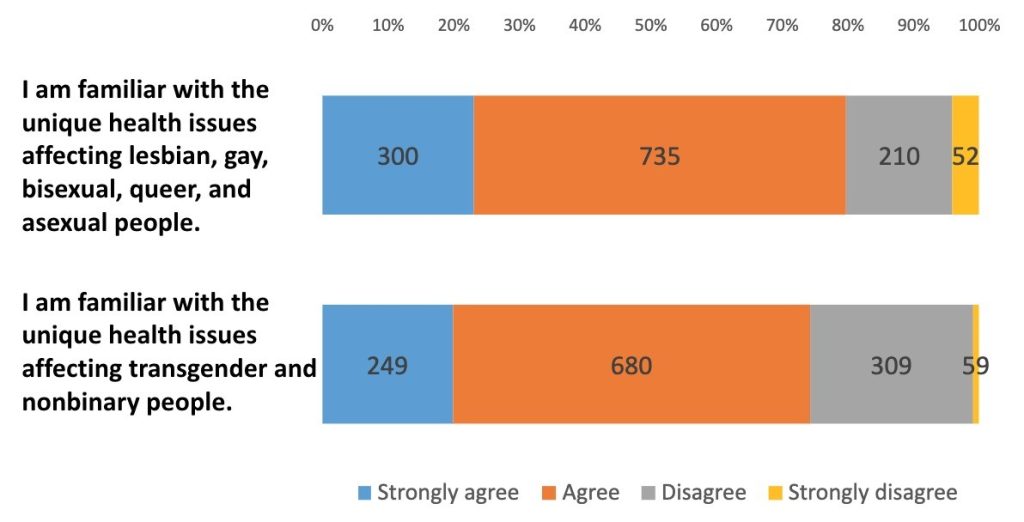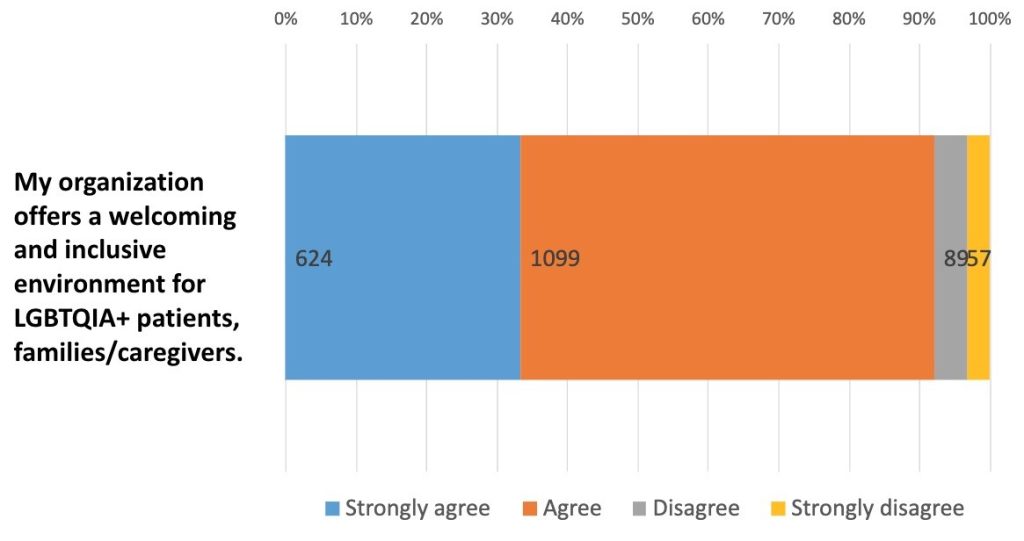The National LGBTQIA+ Health Education Center provides individualized training and technical assistance (T/TA) to health care organizations ready to take LGBTQIA+ health to the next level. Our T/TA focuses on helping organizations assess their readiness for change, train their staff in core LGBTQIA+ concepts, and operationalize strategies for creating welcoming and inclusive environments for their LGBTQIA+ patients.
The National LGBTQIA+ Health Education Center provides T/TA to Federally Qualified Health Centers (FQHCs) and FQHC look-alikes for free, and to non-FQHC organizations through our health education consulting program.
Using an internal and worldwide network of specialists, we develop T/TA programs for organizations to address a variety of topics affecting LGBTQIA+ populations in healthcare.
Our provision of T/TA takes many forms and can include in-person training sessions, online learning collaboratives, deployment of specialists to assess health center protocols, and more. We also provide numerous resources for our T/TA clients, including strategies for collecting and managing sexual orientation and gender identity data, redesigning physical health center spaces to be LGBTQIA+ inclusive, and collaborating to create all-staff trainings on inclusive and responsive care for LGBTQIA+ communities.
If you are interested in our training and technical assistance or educational opportunities, please fill out this form.
Our Approach
We recommend a three-phase approach, but we can adapt the approach to meet your needs.
Phase 1: Readiness Assessments
In this phase, we create a solid starting ground and create “buy-in” with staff and leadership. We use two assessment tools: one for all staff and one for leadership. These tools together assess staff’s knowledge, attitudes, and preparedness to care for LGBTQIA+ patients, as well as the environment of care for LGBTQIA+ patients. Working with each organization, we can also review key documents and policies to ensure greater inclusion of LGBTQIA+ patients and their families. After collecting the results, we provide a presentation of key results and make recommendations for next steps.
Below are sample questions from the all-staff assessment, along with the average results among all the health centers that we have worked with.


Phase 2: Education
In this phase, we provide access to staff training based on the needs identified in the assessment phase. Training may be distributed through various methods, including in-person staff training, a train-the-trainer program, or guided access to our print and web-based materials. Our materials, trainings, and consultation are developed from evidence-based best practices and principles of adult learning.
Below is a sampling of the different types of deliverables we can provide.
Virtual Trainings: Fenway will deliver a series of one-hour virtual training sessions, including 45-50 minutes of didactic presentation with Q&A. This training also includes a pre- and post-assessment survey. Fenway can host these trainings through Zoom, but they can also occur in-person. Additional travel costs may apply.
Train-the Trainers: Fenway will deliver three-hour sessions designed to train a subset of staff to be able to train their peers and colleagues on providing inclusive and affirming care for LGBTQIA+ patients.
Consultation of Forms, Policies, and EHR: Fenway will provide consultation around forms, policies, and electronic health records through a series of one-hour phone calls with expert staff.
Resource Development: Fenway will develop educational resources to be distributed to staff in an on-going manner.
E-Learning Module Development: Fenway will deliver a series of 20-minute, 30-minute, or 60-minute e-learning modules in collaboration with the health care organization and will make these available through an online learning management system.
Executive Briefings: Fenway will deliver a presentation to the executive leadership team, detailing and discussing planned LGBTQIA+ health-related training and technical assistance for your organization.
Phase 3: Follow-Up Support
Follow-up support from our national network will help you maintain momentum and optimize your approach to organizational change. Our program staff will provide online connections to peers and experts across the country and will moderate group discussions of key areas of common work.

